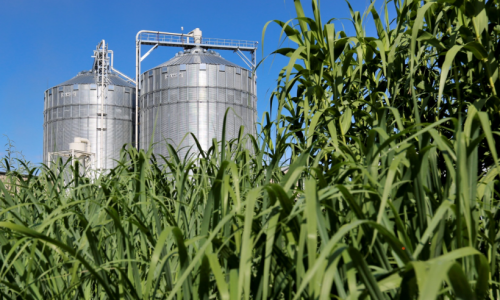Indonesia has the potential opportunity to be the most prominent digital economy in the remaining year of 2022 and the future. This opportunity lies in the high digital penetration of mobile phone among its population.
The country’s telecommunication and infrastructure have recently grown, but also its ever-growing population of 273.5 million has supported much of the penetration. Indonesia is one of the highest mobile phone penetration in the world, with over 370.1 million phone users in 2022. This figure is a 3.6% increase from the previous year.
Telkom vows to accelerate digitalization opportunities
State telecommunication company PT Telkom Indonesia Tbk (Telkom) has been committed to accelerate the opening of more opportunities and easy innovations in digitalization, which also strengthens the ecosystem and digital industry in Indonesia.
“There are over 202.6 million internet users and 345 million mobile phone users in Indonesia. Most of them are social media users and they also access videos and e-commerce. E-commerce can also be a good opportunity for us,” Telkom CEO Ririek Adriansyah said during the 2022 Investor Daily Summit (IDS) in Jakarta on October 11, 2022.
Indonesia is also one of the fastest-growing digital economies. The digital economy would rise 8 times, reaching about IDR 4,531 trillion in 2030 from IDR 632 trillion in 2020 or 40% of ASEAN’s GDP.
Currently, Telkom has prioritized several infrastructures to create competitiveness compared to other ASEAN countries in terms of digitalization.
In accelerating digital transformation, Telkom’s fiber optic network has connected over 9 million houses. The company – through its subsidiary PT Telekomunikasi Seluler (Telkomsel) – has covered almost 12,000 villages with an internet connection.. The project is in cooperation with the Ministry of Communication and Informatics.
Adriansyah said that the project had a significant potential in the future as it has covered around 171,000 Kilometers of fiber optics, or equivalent to 4 times around the world in length.
Telkom has data center services that include 5 global data centers, 1 data center with tier 4 quality, 3 domestic data centers, 1 domestic hyper-scale data center and 18 domestic neuCentrix data centers. Meanwhile, its digital platform consists of the cloud, data center, security, big data, Internet of Things (IoT) and payment.
The company will focus on supporting the digital economic growth such as micro-, small- and medium-enterprise (MSME) sector. Indonesia now has over 65 million MSMEs, which contribute to more than 90% of jobs in the country and national economic growth of between 5% and 7%.
“Telkom has services from end to end. So, our focus is to bring maximum services for all Indonesian people to increase the digital economy,” Adriansyah said.
Competing with other nations
The digital economy in Indonesia has the potential to beat China, the world’s biggest economy, as the opportunity is massive, according to Neneng Goenadi, Grab Indonesia Country Managing Director.
Grab Holdings Inc. (Grab) is a Singaporean multinational technology company that was established in Malaysia. The company started its business in 2011 as MyTeksi in Malaysia, providing transportation, food delivery and digital payment services using the mobile app. Later, it expanded to the Philippines, Vietnam, Indonesia and others.
Goenadi explained that the digitalization in Indonesia was not only available in major cities, but also already reached smaller cities.
“Google said Indonesia’s digital economy will be double in 2030. The internet penetration [in the country] during the [COVID-19] pandemic was 64% while post pandemic reached 74%. There was a bless in disguise with the pandemic,” she said. “Indonesia’s young population, who mostly are technology savvy, also boosts digital economy.”
Grab in Indonesia has contributed to its digitalization, providing many entrepreneurs and small businesses to thrive during the pandemic. Citing an example, Goenadi said that Grab helped a traditional market seller to join its on board program and helped her raise her income from IDR 15 million per month to IDR 120 million monthly. There are currently 5,200 markets joining the on board program.
Challenges behind digitalization in Indonesia
The challenges in the digitalization in Indonesia include:
- Disparities in technology infrastructure between one area to another
- Existence of some societies that have not fully accepted technology based on local values and culture
- Different adoption and utility of technology among societies, and
- Social structures that in some regions are still exclusive and reject external cultures, including technology.
The demand for consistency to build Indonesia’s digital society considering that the prospects of a digital society will have a positive impact on all aspects, including reinforcing the nation’s identity as an archipelago that connects one region to another with technology, bridging the development gap and underpinning the smart city, according to Dian Herdiana of the Bandung-based Padjadjaran University in her “Indonesia’s Digital Society: Challenges and Prospects” research paper.









